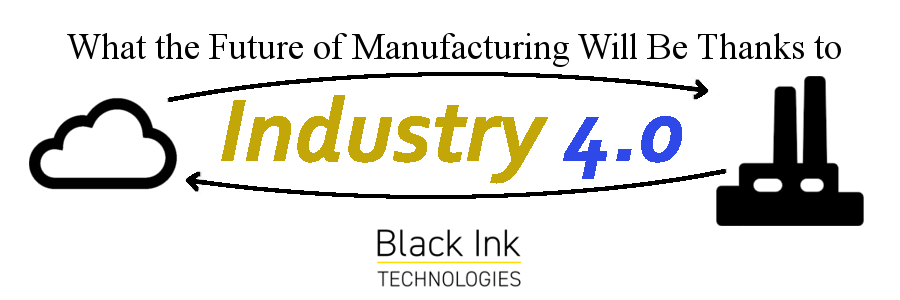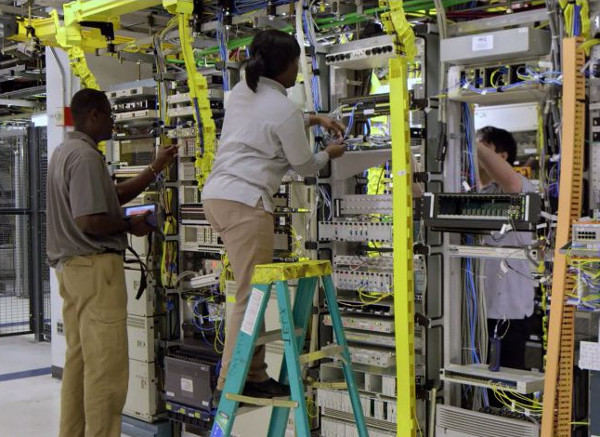May The Fourth Industrial Revolution Be With You
by Black Ink Team

First used to denote a system of information technology improvements through which manufacturers in Germany would enhance their processes, ‘Industry 4.0’ is now used to refer to the current trend of growing interconnectivity between the systems that monitor and control the supply, production, and business sides of modern manufacturing. The core belief underlying Industry 4.0 is that the best framework for producing goods today is one that emphasizes the availability, use, and integrity of data.
Industry 4.0 will theoretically change existing factories into ‘smart’ factories. For this to happen, they must go through some evolutionary changes. First, all their physical components or as many as can be must become linked via the Internet of Things. This will let activity and supply levels be monitored in real-time and also allow machines to be controlled remotely. Concurrently with that change, virtual copies of each of their factory floors will be made, which will get used by manufacturers to test theories for optimizing workflow - similar to how a contractor might make 3D digital layouts of your home while they are planning an addition.
Naturally, smart factories produce smart products. Barcodes attached (both physically and digitally) to each individual product let humans and machines know the history of the product as well as reduce the likelihood that something will be built incorrectly or wind up going to the wrong place. Furthermore, with certain integrated systems in place barcoded products can ‘think’ for themselves – they can identify faster or more efficient routes for reaching their own target state and take them.
Besides CPS’s (cyber-physical systems) smart factories must include cloud computing capabilities. Some manufacturing tasks, such as 3D modelling, take tremendously onerous amounts of computing power to handle. Rather than building or buying their own very powerful computers, manufacturers can instead reduce costs by outsourcing their most taxing computing needs to companies who offer on-demand computing services.

Industry 4.0 changes will not only make manufacturers’ factories able to operate more smoothly, they will also make them nimbler. They will be better able to adapt ‘on-the-fly’ to equipment failure, labor shortages, and failures on behalf of suppliers. Furthermore, manufacturers will be able to implement more last-minute changes to product specifications, thanks to fast factory floor changes, allowing them to meet more individual customer requirements.
To illustrate how these changes to factories will make processes simpler and more efficient, here’s one example: a power equipment dealer would like to start selling a proprietary iteration of a chainsaw. Maybe the trees in their area grow unusually thick bark – in any case, the dealer would send the manufacturer a purchase order for some amount of custom chainsaws. To see if the arrangement would work, the manufacturer would then, using cloud computing, model the chainsaw as well as the changes that they would need to make to their factory floor. Granted that it would, and the chainsaws get made, their barcodes would help ensure that they get placed on the right trucks and the factory would then get reverted back to its base orientation. All of this would happen with neither the manufacturer nor the dealer ever missing a beat.
Without Industry 4.0 changes in place, there’d be a lot that could potentially go wrong for this scenario. The manufacturer might have to outsource the 3D modelling either because they don’t have computers capable of handling it or they don’t have cloud computing, which would increase costs and push back the timetable. Or, the dealer might mistakenly receive a shipment containing chainsaws made with the original design, which would have to get shipped back and would also increase costs and push back the timetable.
Proponents of Industry 4.0 changes see them as a necessary step for manufacturers to take in today’s fast-paced, competitive, and increasingly digital world. With smart factories paving the way for manufacturers who will be able to meet more customer needs at an individual level, another necessary step might be for them to incorporate a CRM into their sales and marketing strategies, to keep track of all the added complexity.
